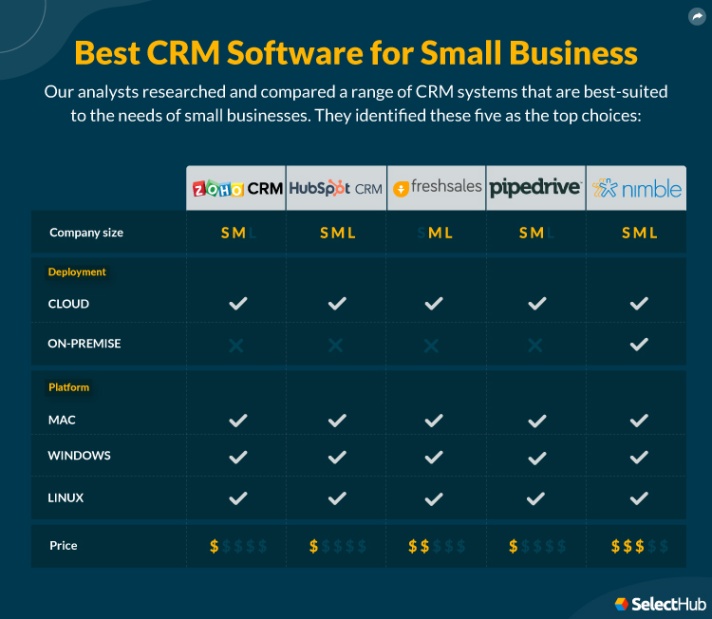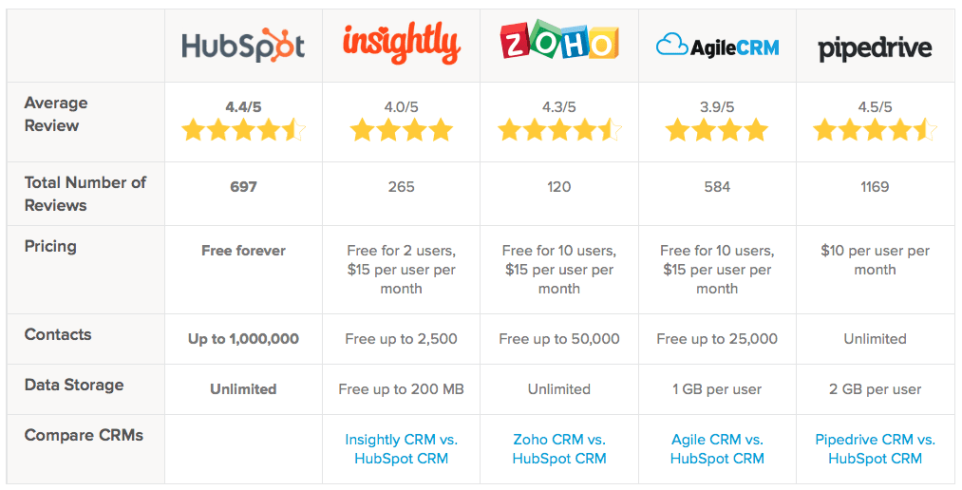Compare CRM Software for Small Business
What do you mean by CRM software for small business?
Customer Relationship Management (CRM) software is a tool that helps businesses manage interactions with their customers and potential customers. It is designed to streamline processes, improve customer service, and increase sales. CRM software for small business is tailored to the needs and budget constraints of small companies, offering features that are essential for managing customer relationships effectively.
How can CRM software benefit small businesses?

Image Source: mopinion.com
CRM software can benefit small businesses in several ways. Firstly, it helps in organizing customer data and interactions in one centralized system, making it easier to track and manage customer relationships. This leads to improved customer service and customer satisfaction. Secondly, CRM software can automate various tasks such as lead management, email marketing, and sales reporting, saving time and increasing efficiency. Lastly, CRM software provides insights into customer behavior and preferences, helping businesses tailor their marketing and sales strategies for better results.
What is known about CRM software options for small businesses?

Image Source: selecthub.com
There are numerous CRM software options available for small businesses, each offering different features and pricing plans. Some popular CRM software options for small businesses include Salesforce, HubSpot CRM, Zoho CRM, and Insightly. These software solutions cater to the needs of small businesses by offering features such as contact management, lead tracking, sales pipeline management, and email integration. Each CRM software has its strengths and weaknesses, so it’s important for small businesses to compare and choose the one that best fits their requirements.
How to compare CRM software for small businesses?

Image Source: ctfassets.net
When comparing CRM software for small businesses, it’s important to consider several factors. Firstly, assess the features offered by each CRM software and determine which ones are essential for your business. Consider features such as contact management, lead tracking, sales forecasting, and reporting capabilities. Secondly, evaluate the pricing plans of each CRM software and choose one that fits within your budget. Lastly, consider the ease of use and customer support provided by the CRM software vendor, as these factors can greatly impact the implementation and usage of the software.
What is the solution for finding the right CRM software for your small business?
The solution for finding the right CRM software for your small business lies in conducting thorough research and comparing different options. Start by identifying your business needs and goals, and then evaluate CRM software options that align with these requirements. Consider seeking recommendations from other small business owners or consulting with CRM software experts. Additionally, take advantage of free trials offered by CRM software vendors to test the software’s features and usability before making a final decision.
Information on the best CRM software for small businesses
When it comes to choosing the best CRM software for small businesses, there are several top contenders in the market. Salesforce is a popular choice for its robust features and scalability, making it suitable for businesses of all sizes. HubSpot CRM is known for its user-friendly interface and comprehensive marketing Automation capabilities. Zoho CRM offers a customizable and affordable solution for small businesses, with features such as lead management and sales forecasting. Insightly is another great option for small businesses, with its focus on project management and collaboration features.
How to describe the features of CRM software for small businesses?
CRM software for small businesses typically includes features such as contact management, lead tracking, sales pipeline management, email integration, and reporting capabilities. Contact management allows businesses to store and organize customer information in one centralized system, making it easy to access and update. Lead tracking helps businesses keep track of potential customers and their interactions with the company. Sales pipeline management enables businesses to track and manage sales opportunities from lead to closure. Email integration allows businesses to send personalized emails and track customer responses. Reporting capabilities provide insights into sales performance and customer behavior.
Why is it important to compare CRM software for small businesses?
Comparing CRM software for small businesses is important because it allows businesses to find the solution that best fits their needs and budget. By comparing different CRM software options, businesses can identify the features that are essential for their operations and choose a software that aligns with their goals. Additionally, comparing CRM software helps businesses avoid investing in a solution that may not meet their requirements or provide the necessary support. Ultimately, comparing CRM software for small businesses ensures that businesses make an informed decision that will benefit their operations in the long run.
What are the key factors to consider when comparing CRM software for small businesses?
When comparing CRM software for small businesses, key factors to consider include features, pricing, ease of use, customer support, and scalability. Assessing the features offered by each CRM software is crucial in determining whether it meets your business needs. Pricing is another important factor, as businesses need to ensure that the CRM software fits within their budget. Ease of use and customer support are also vital considerations, as they can impact the implementation and usage of the software. Lastly, scalability is important for small businesses that plan to grow and expand in the future, ensuring that the CRM software can accommodate their changing needs.
Conclusion
Choosing the right CRM software for your small business is a crucial decision that can have a significant impact on your operations and customer relationships. By comparing CRM software options based on features, pricing, ease of use, and scalability, you can find a solution that meets your business needs and helps you achieve your goals. Conducting thorough research, seeking recommendations, and taking advantage of free trials can help you make an informed decision and ultimately benefit your small business in the long run.
FAQs
1. How do I know which CRM software is best for my small business?
It’s important to assess your business needs, research different CRM software options, and consider factors such as features, pricing, and customer support before making a decision.
2. Can I switch CRM software if I’m not satisfied with my current choice?
Yes, most CRM software vendors allow businesses to switch to a different solution if they are not satisfied with their current choice. However, it’s important to consider the implications of switching and ensure a smooth transition.
3. How much should I budget for CRM software for my small business?
The cost of CRM software for small businesses can vary depending on the features and pricing plans offered by different vendors. It’s important to assess your budget and choose a solution that fits within your financial constraints.
4. What are some common challenges faced when implementing CRM software for small businesses?
Common challenges include data migration, employee training, integration with existing systems, and ensuring user adoption. It’s important to address these challenges proactively to ensure a successful implementation.
5. How can CRM software help my small business improve customer relationships?
CRM software can help businesses improve customer relationships by organizing customer data, tracking interactions, providing insights into customer behavior, and enabling personalized communication. This leads to better customer service and increased customer satisfaction.
6. Are there any industry-specific CRM software options available for small businesses?
Yes, there are industry-specific CRM software options available for small businesses in sectors such as Real Estate, healthcare, retail, and professional services. These solutions are tailored to the unique needs of specific industries and offer features that cater to their requirements.
7. How can I ensure the security of customer data when using CRM software for my small business?
It’s important to choose a reputable CRM software vendor that prioritizes data security and compliance with regulations such as GDPR. Implementing security measures such as encryption, access controls, and regular data backups can help protect customer data from unauthorized access or breaches.
compare crm software for small business
